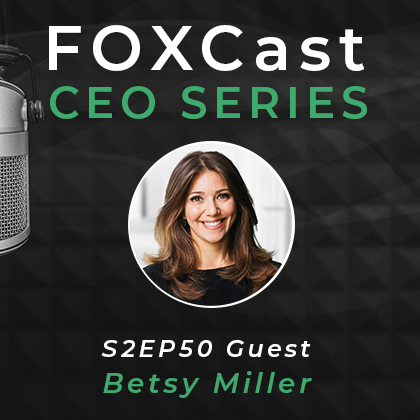
Harnessing Polarities and Both/And Thinking to Help the Family Thrive with Betsy Miller
Publish Date: Thursday, Dec 12, 2024
40:34
Today, I am pleased to welcome Betsy Miller, Lecturer on Law at Harvard Law School. Betsy teaches leadership development, change management and negotiation skills, and her research and writing focus on Polarities (“Both/And” thinking), which is the study of opposite forces that need each other to succeed. Betsy’s 25-year career has spanned positions in federal and local government, defense and plaintiff law firms, and academia.
Through 2023, she was Chair of Cohen Milstein’s’ Public Client practice, where she represented state Attorneys General as their lead outside counsel in investigations and litigation involving large-scale consumer fraud and privacy violations, including the national opioid litigation that delivered more $25 billion in relief, and the $2.2 billion resolution of federal and state litigation against the largest credit rating agencies for their misconduct in connection with mortgage-backed securities. Betsy was the 2021 recipient of the Givens Visionary Award from The National Law Journal, was awarded a Wasserstein Fellowship by Harvard Law School, and was named Special Advisor to the Commission on Women in the Profession by the President of the American Bar Association in 2023.
Betsy offers an introduction to the idea of polarities and “Both/And Thinking” and a high-level overview of these concepts and the science behind them. There are numerous such baffling polarities in the family enterprise and family office world. Even the name “family office” is a bit of an oxymoron encapsulating the polarities it contends with.
One common polarity of diametrically opposed forces enterprise families experience is the importance of preserving and growing the family capital vs. putting it to work to make a positive impact. Another one is the tension between the desire to learn from and build on the wisdom and success of the older generation vs. the need to empower the rising generation to chart their own course. Yet another is the tug of war between the mission of the family office to steward and invest the family’s financial capital vs. its role to educate and educate the human capital and ensure family members are happy and fulfilled.
Besty shares her thoughts about these and similar polarities that affect enterprise families and provides some insight into how to best think about and deal with them.
A great practical tool Betsy offers is the 2-dimensional chart that helps people visualize the polarities they are facing and understand and manage both the benefits and the overuses of each extreme end of the polarity continuum. She talks about this tool, how it can be used to not only understand the opposing forces and tendencies, but also to harness the benefits of each extreme while minimizing the counterproductive overuses. Betsy also describes some of the other practical and educational resources she recommends to those who wish to learn more about polarities, become better equipped to spot them, and develop their skills at applying a Both/And Thinking approach in their interactions with their fellow family members or with their family clients.
Do not miss this illuminating conversation with one of the leading researchers and educators in the field of polarities and Both/And thinking.